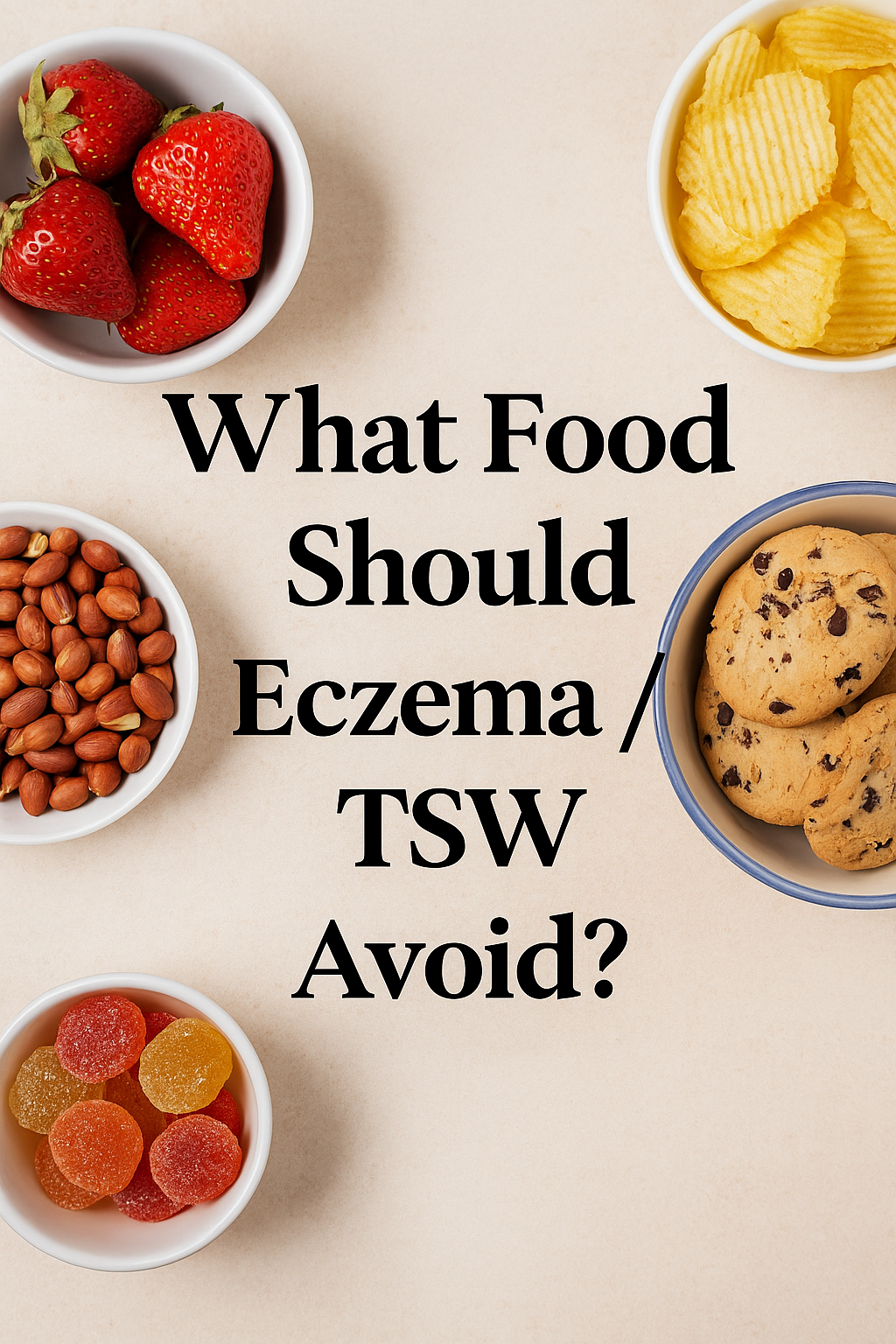Introduction
If you’ve ever said, “I swear it’s the food,” after a flare-up… you’re probably right. For many eczema and TSW warriors, what you eat can either soothe your skin or set it off. While everyone’s triggers are a little different, there are common offenders worth avoiding — especially during active flare phases.
The Link Between Food and Skin Flares
Inflamed skin is inflamed from the inside too. Certain foods can aggravate your immune system, increasing histamine response or inflammation, which shows up as red, itchy, flaking skin. If your skin is already sensitive due to TSW or eczema, this becomes an even bigger deal.
Common Foods to Avoid
- Dairy – milk, cheese, yoghurt. Often triggers mucus production and inflammation.
- Eggs – especially egg whites, which are common allergens.
- Wheat and Gluten – found in bread, noodles, cereals. Can irritate gut health which reflects in skin.
- Soy – tofu, soy milk, and soy sauces. Soy is a top allergen for many.
- Peanuts and Tree Nuts – these can cause both digestive and skin reactions.
- Shellfish – prawns, crab, lobster. High histamine and allergenic load.
- Refined Sugar – candies, sodas, pastries. Sugar feeds inflammation and suppresses immune recovery.
- Processed Foods – additives and preservatives are hard on healing bodies.
Watch Out for Hidden Triggers
Even innocent-looking foods can be problematic. Did you know bananas and tomatoes are high in histamine? Or that bone broth might be too intense during TSW?
How Do You Know What’s Triggering You?
We recommend a simple elimination strategy — cut out the main food groups above for 2–3 weeks. Slowly reintroduce one item at a time, spacing it out by 3–4 days. Keep a journal. If your skin reacts, you’ve found a suspect.
It’s Not About Perfection
You don’t need a flawless diet. You need a supportive one. Especially during TSW, your body is already working overtime. Eat simply. Cook clean. Drink water. Avoid inflammatory foods while your skin is still hot, red, or peeling.
Good News: Many People Heal and Return to Normal Eating
Yes, even our co-founder had to cut out eggs, wheat, and dairy for a full 6 months during TSW. But eventually, once the skin calmed, foods could be reintroduced in moderation — without flaring. So this isn’t forever. It’s just for now.
So What Should You Eat Instead?
- Steamed or lightly cooked veggies
- White rice or millet
- Boiled or grilled white meat (chicken, turkey)
- Omega-3 rich fish (if not allergic)
- Simple soups, congee, root vegetables
- Herbal teas, coconut water
Mummybrand’s Role in Skin Recovery
We don’t just talk about food. We look at healing from all angles — skincare, food, lifestyle. Our starter kits are crafted to work alongside an anti-inflammatory diet and have helped hundreds in Singapore alone recover faster.
→ Start your skin recovery journey now
Mummybrand — Made Fresh. Made For Healing.



